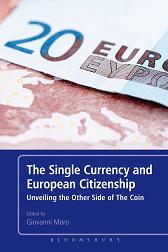Mercille, J., (2013), “European Media Distort the Lessons of Argentina’s Crisis and Recovery”, Social Europe Journal, 07 October. The European media have distorted the lessons of Argentina’s relatively successful response to its own economic crisis a decade ago, as newly published research documents in detail. This is not surprising, because the policies adopted by Buenos Aires were directly opposed to those currently favoured by European authorities, in particular the ECB …Read More
The Euro crisis and its impact on national and European social policies
Degryse, C., Jepsen, M. and Pochet, P., (2013), “The Euro crisis and its impact on national and European social policies”, European Trade Union Institute, Working Paper 2013.05, October. This critical working paper looks at the series of political choices, circumstances and windows of opportunity that have enabled one particular vision of the model of EU monetary union to gain acceptance. In the context of this model, political union is not …Read More
Can demography explain Portugal’s growth slump before the crash?
Hugh, E., (2013), “Can demography explain Portugal’s growth slump before the crash?”, A Fistful Of Euros Blog, 06 October. The issue being raised revolves around the current acceleration of emigration from countries on the EU periphery, largely towards the EU core. Typically the emigrants are young educated people who can’t find work. There is nothing especially surprising in this, since the tendency has long existed for people to move from …Read More
The Single Currency and European Citizenship: Unveiling the Other Side of The Coin
Moro, G. ed., (2013), The Single Currency and European Citizenship: Unveiling the Other Side of The Coin, London: Bloomsbury Academic. Established in 2002, the Euro is now the currency of 17 countries used by over 335 million people daily. Although the single currency is much discussed in terms of macroeconomics and global finances, policymakers rarely address its impact on European citizenship in social, cultural, political, and everyday life economics terms. …Read More
The Legacy of Austerity in the Eurozone
De Grauwe, P. and Ji, Y., (2013), “The Legacy of Austerity in the Eurozone”, Centre for European Policy Studies, 04 October. The recent slight improvement in the GDP growth rates in the eurozone has led European policy-makers to proclaim victory and assert that the austerity programmes imposed within the eurozone are paying off. But is this really the case? In this Commentary Paul De Grauwe and Yuemei Ji argue that …Read More
Eurozone recovery: The world is not enough
Tilford, S., (2013), “Eurozone recovery: The world is not enough”, Centre for European Reform Blog, 03 October. The end of the eurozone’s long recession has been met with relief by its policy-makers, with some jumping on the news to justify their management of the eurozone crisis. They argue that the eurozone economy is on the mend, and the recovery will gain momentum over the coming quarter. If they are right, …Read More
How to form a more perfect European Banking Union
Ubide, A., (2013), “How to form a more perfect European Banking Union”, Peterson Institute for International Economics, Policy Brief, PB13-23, October. The euro area has made significant strides in the last six months in designing a banking union. The goal has been to centralize supervisory decision making and improve the management of failing banks while protecting European taxpayers and imposing costs on creditors through so-called bail-ins to reduce moral hazard. …Read More
Europe’s Responsible Solidarity
Letta, E., (2013), “Europe’s Responsible Solidarity”, Project Syndicate, 03 October. Next year will be crucial for the European Union. EU citizens will elect a new European Parliament, which will vote for a new president of the EU Commission. There will be a new president of the European Council and a new high representative for foreign and security policy as well. This change of top EU personnel represents an ideal opportunity …Read More
Giving Credit Where Credit is Due: How to Design Policies that Work
Oppers, E., (2013), “Giving Credit Where Credit is Due: How to Design Policies that Work”, IMF direct, 02 October. What’s up with weak credit? Five years into the economic crisis credit is still barely growing, and even declining in many advanced economies. Weak credit growth is a major factor holding back the economic recovery and governments have tried every policy they can come up with to jumpstart credit. Still, banks …Read More
Europe’s Eroding Foreign Investment
Steinbock, D., (2013), “Europe’s Eroding Foreign Investment”, EconoMonitor, 02 October. Today foreign direct investment (FDI) is driven by emerging nations and the impending unwinding of U.S. monetary stimulus. In Europe, the lingering debt crisis is reflected in the dramatic plunge of FDI inflows. In the postwar era, the degree of global economic integration was still relatively low. As a result, international trade played a vital role in global growth. Today, …Read More





